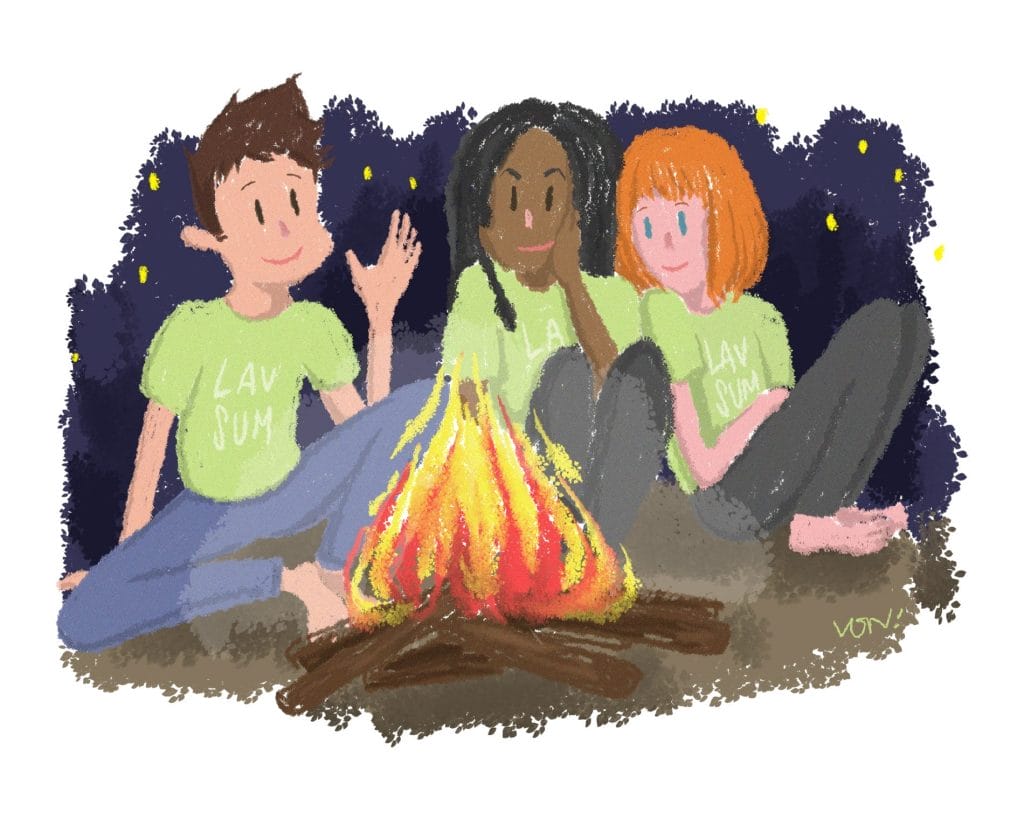Lavender Summit: developing identity through community

Illustration by Steck Von.
Brianna Scott
Contributing Writer
National Coming Out Day was last week. And I have to say, I can’t be the only one who didn’t know there was a designated day for coming out. That could be because I haven’t been comfortable with my own sexuality since the day I figured out I wasn’t straight, many awkward moons ago in middle school.
It wasn’t until I was riding a bus loaded with other queer-identifying folks for a weekend-long event in Williamsburg that I finally got a sense of the community I was missing.
The Lavender Empowerment Summit transformed my life in only three days — and that’s not an overstatement.
I always kept myself at an arm’s distance from the LGBTQIA+ community. I didn’t feel validated in my sexuality because I didn’t identify as lesbian or bisexual. I didn’t feel queer enough because I mainly dated men. I didn’t feel that I encountered any oppression because of my sexual orientation. Most of all, I just didn’t know how to talk about it — especially as a black woman.
The intersection between being black, queer and a woman is interesting and difficult. Growing up, I had no one to talk to about it. My childhood best friend was bisexual and a close friend of mine in high school was gay, but I wasn’t predominantly surrounded by other non-straight folks until I came to VCU.
Lav Summit, which is organized by VCU’s Office of Multicultural Student Affairs, is open to all LGBTQIA+ college students. The goal of Lav Summit was to provide a safe space for students to discuss their experiences and issues within the queer community. It was also designed to help students gain leadership skills by empowering them to use their voices to educate others and be confident in their identities.
Most of the weekend was filled with educational presentations and panels along with ice-breakers and social activities to get to know other students. Presentations covered topics from asexuality and ableism in the queer community to queer representation in media and mental health in the queer community, among others.
There was also space made for queer and trans people of color (QTPOC) to have discussions. For me, this was one of the most crucial and transformative aspects of the weekend. I can’t separate my queer and black identities — they intersect and influence one another. Mainstream media creates an image that the only queer people are gay white men, but even going back to the Stonewall riots, black queer icons like Marsha Johnson are important figures in LGBTQIA+ community and history.
QTPOC need to have their own spaces to have discussions on how to navigate this world in our skin. I had never been in a QTPOC-dominated space before I arrived at Lav Summit. Being in that space — in a room full of other people of color who identified as queer in some way — made me feel welcome in a way that I never had before.
Over that weekend, I met people around whom I felt I could be my authentic self, unapologetically. During the QTPOC meetings, I was able to say what was on my mind without fear. Many other people told me they could relate to what I shared pertaining to my experiences as a queer black woman.
I learned it’s OK to be complicated and still figuring yourself out — it doesn’t make you less valid. We have our whole lives to figure ourselves out and getting to a point where you can be OK with that is important. If you keep trying to tell yourself who you are, rather than allowing yourself to discover that on your own time, you’re going to end up trying to be something you aren’t.
Coming out of Lav Summit, I have people who will look out for me if I need them to — people who will continue to learn and grow with me. Everyone deserves that, regardless of race, gender or sexuality. This is my thanks to everyone I met at Lav Summit — the Lav Pals and the courageous QTPOC folks.



